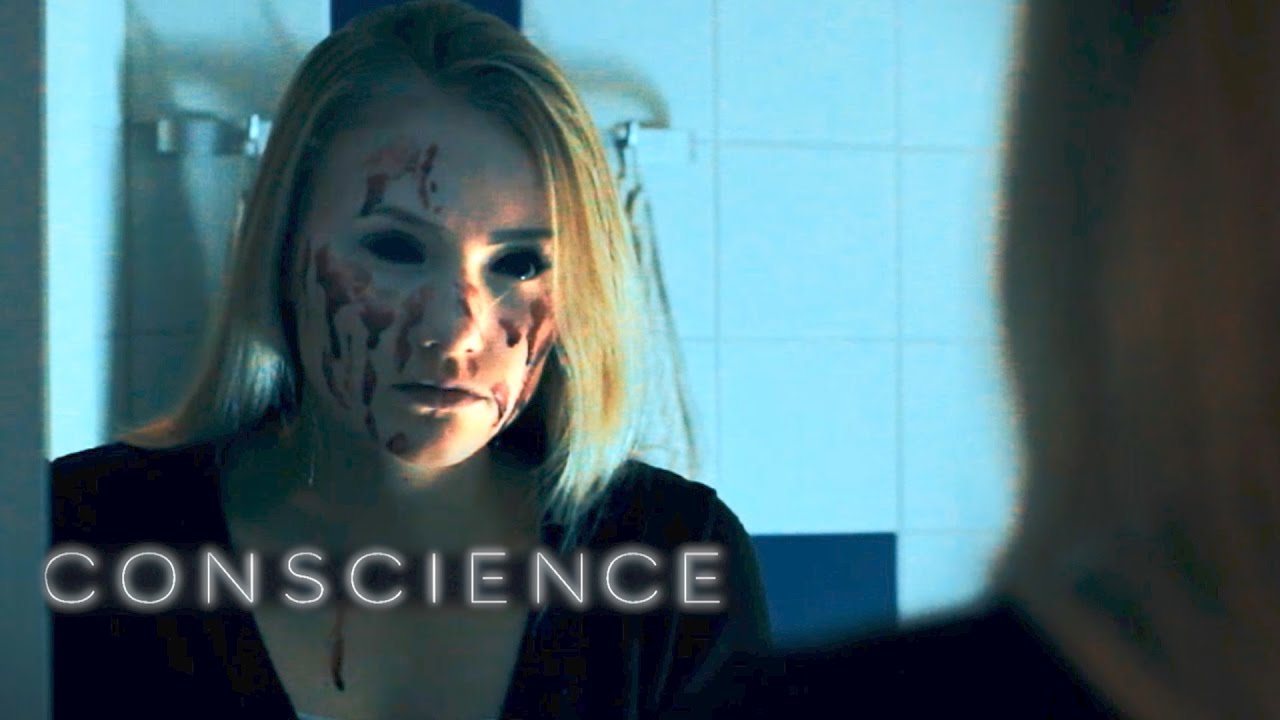Horror in Small Doses: The short film Conscience explores the consequences of ignoring your inner voice.
Low budget horror movies have always been a pretty good bet for those looking to turn a nice profit. A fine example is last year’s Lights Out, a movie made for under $5 million dollars that went on to gross $148 million at the worldwide box office. That’s a pretty impressive return on investment. Of course, what made the success of Lights Out even more astounding is that the entire film was based on a two and a half minute clip on YouTube.
As weird as that may sound, moviegoers may as well get used to the idea of seeing a meme turned into a major motion picture. In a conversation with Business Insider, box office analyst Jeff Bock explains, “If you can get enough hits organically through YouTube, guess what, Hollywood will come calling… These online channels are the way that people are going to be discovered in the future.”
With that in mind, we thought it would be a good idea here at The Horror! to occasionally peruse some of the less-than-feature-length frights to be found out there in the dark corners of the Internet. After all, you never know which of today’s social media neophytes might end up becoming tomorrow’s box office champs. For our first outing, let’s take a look at Conscience, written, directed, shot & edited by Joonas Rinne.
Evolutionary anthropologists such as Christopher Boehm believe humans developed consciences over 45,000 years ago, perhaps out of the necessity of maintaining stability in large hunting groups. Apparently, early men who hoarded mammoth meat eventually learned to feel guilty about it once they discovered not sharing negatively impacted their buddies’ health, and therefore the ability of the group as a whole to secure more mammoth meat. That would mean the conscience is just another form of self preservation. It’s a theory, anyway.
The great religions, on the other hand, believe that the human conscience has been present since the very beginning as an essential part of each person’s spirit. It is there to send out warning signals whenever a person violates the objective moral standards to love, do good, and avoid evil which is ingrained in each soul. To ignore those signals is to risk great peril.
The nice thing about Rinne’s short film Conscience is that it explores these ideas, particularly that last one, without anyone ever uttering a word. This is a neat touch because, although film may be a primarily visual medium, filmmakers very often rely on dialog to get their points across. So, kudos to Rinne for communicating what needs to be said without actually saying it. Which, when you consider the film is about someone’s inner voice, is entirely appropriate.











